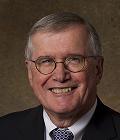Amanda Trujillo and Informed Choices in Advance Illness

Amanda Trujillo, RN
Would you want Amanda Trujillo to be your nurse?
Amanda Trujillo is a master’s-prepared nurse who was working the night shift at Banner Del E. Webb Medical Center in Arizona in early 2011. One of her patients was a critically ill 60 year old woman who had been scheduled for evaluation for a transplant.
According to Amanda, she assessed the woman’s knowledge of her illness and says that the patient didn’t understand her disease, the lab tests, medications, or the self-care that would be needed to recover from a liver transplant for which she was being evaluated. By Amanda’s assessment, no one had ever discussed hospice care with her, even though a consulting physician had noted in the chart that the only two options for the patient were transplant or hospice. Amanda believed that the attending physician’s failure to discuss this option with the patient was an ethical breach of the concept of informed consent.
Amanda had worked on a transplant unit for five years at another hospital and was used to having conversations with patients about preparing for the evaluation and post-transplant self-management. Amanda says that, after talking with the night charge nurse, she accessed the current hospital’s educational materials and prepared a binder of information that she reviewed with the patient. When the patient said that she wanted to go home to be with her father and think about what she wanted, Amanda made a referral for a hospice case management consultation as she had done before without any objections from physicians or the hospital administration. She documented everything in the patient’s record and reported her ethical concerns to the charge nurse.
According to Amanda, she was fired by the hospital for her advocacy on behalf of the patient after the transplant service’s physician expressed his fury at the change in the patient’s decision. Amanda was told that had interfered with the patient’s surgery and that it was not in her scope of practice to make a referral to hospice case management for a consultation without the approval or order of the physician in charge of the patient’s case. The hospital filed a complaint with the Arizona State Board for Nursing. Amanda, as a single mother, found herself unemployed and an “untouchable” in the eyes of other employers.

Amanda Trujillo, RN
Would you want Amanda Trujillo to be your nurse?
Amanda Trujillo is a master’s-prepared nurse who was working the night shift at Banner Del E. Webb Medical Center in Arizona in early 2011. One of her patients was a critically ill 60 year old woman who had been scheduled for evaluation for a transplant.
According to Amanda, she assessed the woman’s knowledge of her illness and says that the patient didn’t understand her disease, the lab tests, medications, or the self-care that would be needed to recover from a liver transplant for which she was being evaluated. By Amanda’s assessment, no one had ever discussed hospice care with her, even though a consulting physician had noted in the chart that the only two options for the patient were transplant or hospice. Amanda believed that the attending physician’s failure to discuss this option with the patient was an ethical breach of the concept of informed consent.
Amanda had worked on a transplant unit for five years at another hospital and was used to having conversations with patients about preparing for the evaluation and post-transplant self-management. Amanda says that, after talking with the night charge nurse, she accessed the current hospital’s educational materials and prepared a binder of information that she reviewed with the patient. When the patient said that she wanted to go home to be with her father and think about what she wanted, Amanda made a referral for a hospice case management consultation as she had done before without any objections from physicians or the hospital administration. She documented everything in the patient’s record and reported her ethical concerns to the charge nurse.
According to Amanda, she was fired by the hospital for her advocacy on behalf of the patient after the transplant service’s physician expressed his fury at the change in the patient’s decision. Amanda was told that had interfered with the patient’s surgery and that it was not in her scope of practice to make a referral to hospice case management for a consultation without the approval or order of the physician in charge of the patient’s case. The hospital filed a complaint with the Arizona State Board for Nursing. Amanda, as a single mother, found herself unemployed and an “untouchable” in the eyes of other employers.





